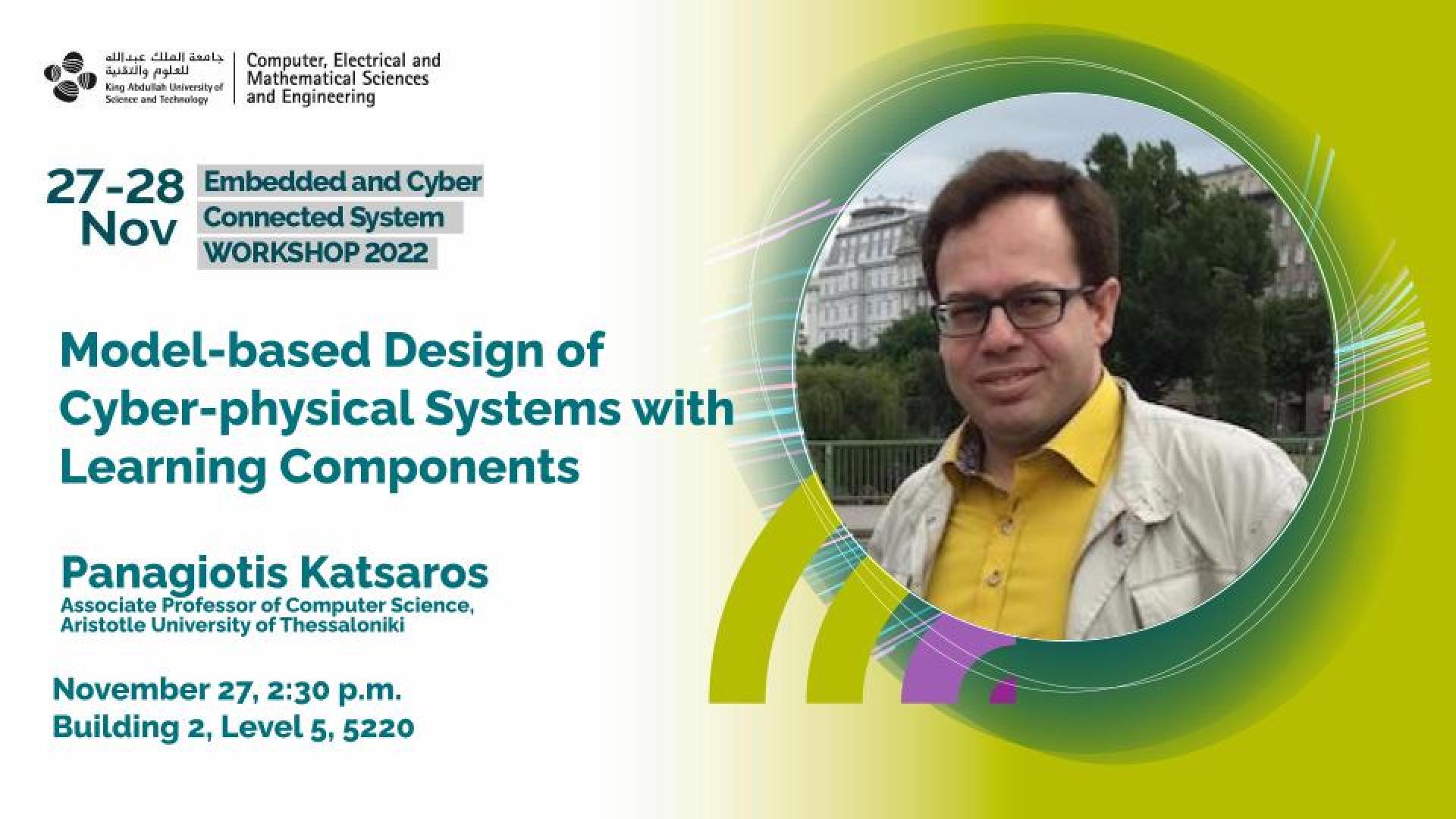Abstract
Cyber-physical system design involves heterogeneous components for sensing, control, actuation, networking and relies on models for the system’s physical dynamics, and all interactions with its environment. Since safety and security are critical, model-based engineering methods are often used to increase the confidence and guide the validation testing of the system under design. An abundant of results from modern system theory (discrete, continuous and hybrid) provides the foundations for modeling, simulation, testing and formal verification. Mature tools and languages offer advanced simulation and formal verification capabilities, but the main problem of high heterogeneity and limited analysis scalability has not yet been addressed.
For autonomous cyber-physical systems that integrate advanced decision-making functions based on learning (i.e. data-driven) components, the system’s design usually evolves, since an ever-increasing set of scenarios have to be considered. We are interested to cover as many critical scenarios as possible, whereas some scenarios may be very costly or even impossible to realize, when the system operates in its environment. In particular, we foresee the need for updates of the learning components and continuous testing/verification of the system, in response to emerging requirements from new scenarios, imperfect knowledge of the machine learning models (noise in data observations) or contextual misbehavior of the learning components, due to e.g., modifications in their operational design domain. In this talk, I am going to present recent results that aim to address the aforementioned challenges towards an effective model-based design flow for cyber-physical systems with learning components (e.g. self-driving cars, medical autonomous systems).
Brief Biography
PANAGIOTIS KATSAROS received the bachelor’s degree in mathematics from the Aristotle University of Thessaloniki (AUTh), Greece, the Master of Science degree in software engineering
from Aston University, Birmingham, and the Ph.D. degree in computer science from AUTh. He is an Associate Professor with the School of Informatics, AUTh. He has published over
100 research papers in international journals and conference proceedings on software engineering. His research interests include the formal verication of software/systems, the model-based design,
the analysis of dependability and security, and the simulation-based performance analysis and optimization. He is a coordinator (or participates) in national and European research and development
projects focusing on engineering of software for Internet of Things systems, space systems, and more recently autonomous systems. Regular updates on his recent research achievements can be
accessed online at https://depend.csd.auth.gr
